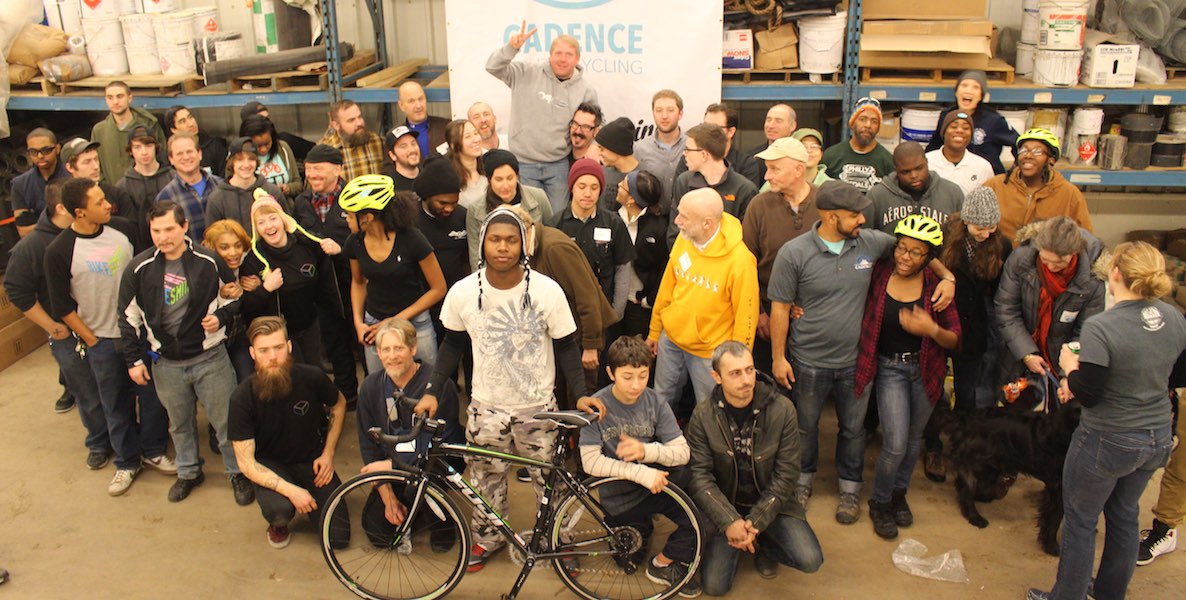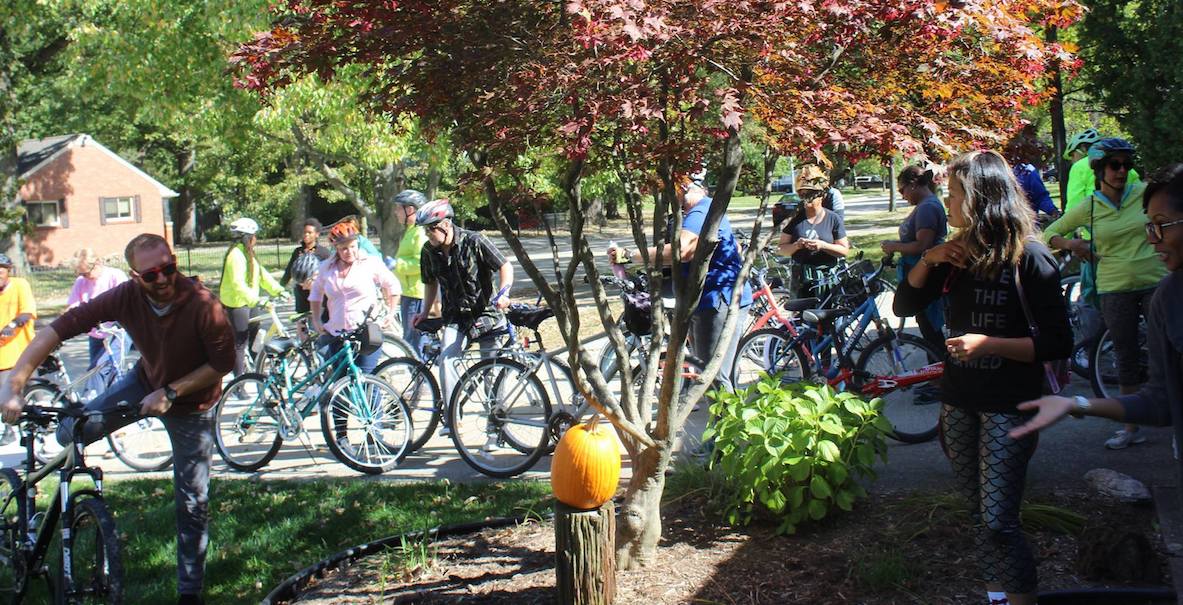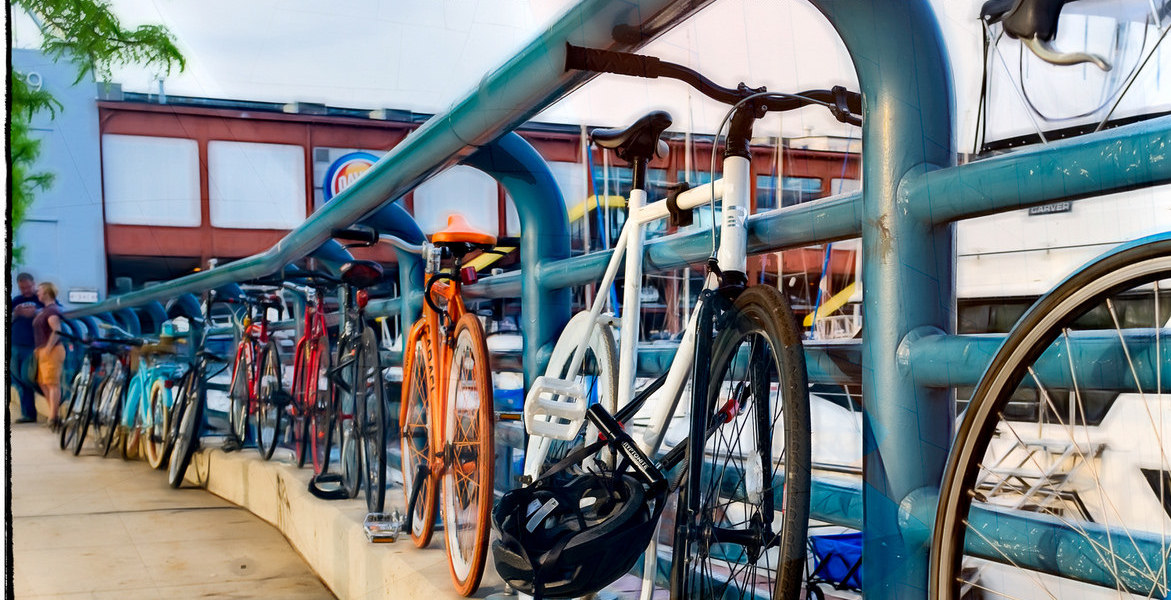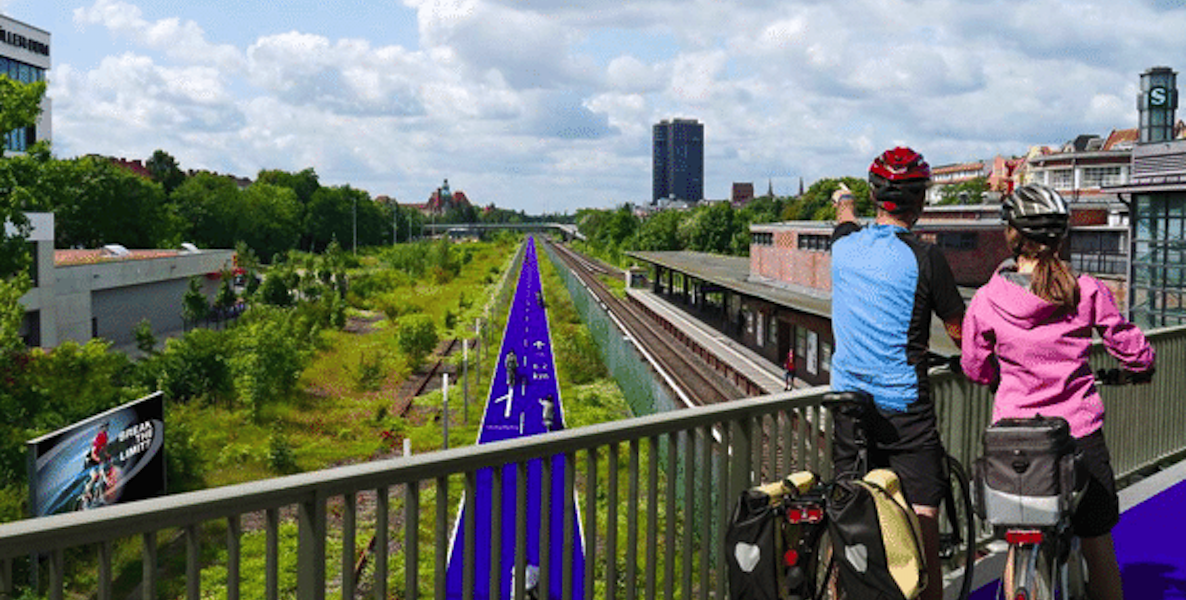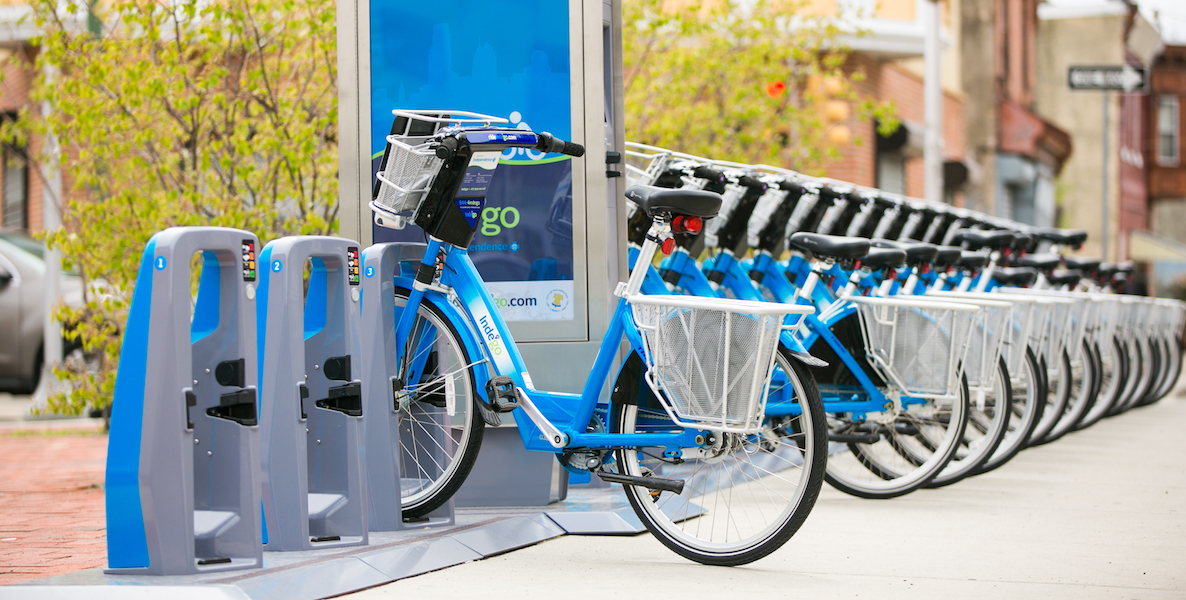The future of bike share is bright and injected with Silicon Valley lingo. The dockless smart bikes spread throughout other major cities are painted yellow, green and orange. They are accessible by app and lock on their own wherever a user wants to leave them. They are emblazoned with names that sound like they’ve been created in a Google laboratory: Spin, Jump, Lime Bike, Ofo and so on (is there a startup that helps startups name their startups? There should be).
It all makes Philadelphia’s Indego and its 120 docking stations and 1,200 bicycles seem quaint. Three years after Indego’s launch, dockless bike share has spread rapidly in big cities and on college campuses, and Philadelphia could be next. The city’s Office of Transportation and Infrastructure Systems sent out a request for information in January showcasing its interest in moving toward this future. Fourteen companies responded, including Bicycle Transit Systems, the current operator of Indego, and a variety of dockless and more traditional operators.
But where other cities could decide almost solely on cost and technological upgrades, Philadelphia must make a more deliberate decision: We have the best thing going anywhere in the country in terms of bike share diversity. Any step forward must improve on the progress already made, and the numerous dockless companies have shown few efforts to promote their services to underserved communities.
Dockless biking has cost advantages and technological upgrades, but Philadelphia must make a more deliberate decision: We have the best thing going anywhere in the country in terms of bike share diversity. Any step forward must improve on the progress already made, and the numerous dockless companies have shown few efforts to promote their services to underserved communities.
How diverse is Philly’s bike share clientele? During peak season last summer about 12.5 percent of riders were black, 10 percent Asian, 6 percent Latino, and 4.5 percent more than one race, and the remaining 67 percent white. Those numbers don’t match Philadelphia’s racial demographics, but they’re better than Philly’s biking demographics. Using Census American Community Survey data, Plan Philly in 2015 estimated about 80 percent of bicycle commuters in the city were white, 10 percent Asian, 4 percent black and the rest another race. About 30 percent of those commuters earned $35,000 or less, the same share Indego saw in its riders last year.
“We’re reaching people all throughout the city and people all throughout the city are using our system,” says Waffiyah Murray, Philly’s Better Bike Share partnership program manager. “We still obviously have a lot of work to do.”
The Indego numbers are also way better than big-city peers. Washington D.C.’s bike share, Capital Bikes, for instance, found 80 percent of its users in 2016 were white and 4 percent black. Just about any change could lead to increased diversity in DC and much of the rest of the country because diversity is nearly nonexistent.
Dockless bike share has some built-in advantages for inclusive growth. For one, there are no space limitations when there are no stations. Bikes could be left in Roxborough or Bustleton or Southwest Philly, areas of the city Indego doesn’t yet reach and would need investment to extend that far.
![]() Dockless is also cheaper for casual users. Lime Bike, Spin and the others typically charge $1 for 30-minute rides in Seattle, Washington DC and Dallas. Indego’s cost is $4 per half hour. But monthly subscribers, who account for 80 percent of Indego’s trips, pay $12 per month if they subscribe for a year or $15 on a month-to-month basis. Monthly subscriptions are less common and more expensive for the main dockless companies and not available in all areas. Spin offers a $29 per month membership in Seattle.
Dockless is also cheaper for casual users. Lime Bike, Spin and the others typically charge $1 for 30-minute rides in Seattle, Washington DC and Dallas. Indego’s cost is $4 per half hour. But monthly subscribers, who account for 80 percent of Indego’s trips, pay $12 per month if they subscribe for a year or $15 on a month-to-month basis. Monthly subscriptions are less common and more expensive for the main dockless companies and not available in all areas. Spin offers a $29 per month membership in Seattle.
The price and the footprint are encouraging for building a diverse ridership, the business model less so. With several competitors vying to become the Uber of bike share and none of them close to profitable, their strategy is to assert dominance by flooding the market and asking questions later. Dallas has about 20,000 dockless bikes. Seattle has nearly 6,000. And there’s little concern with tracking equitability.
I asked several of the major companies for any data they had on their users’ race or income levels. Spin responded by saying it didn’t keep track of data. Ofo, the biggest company, doesn’t keep track either, though a representative said it strategically places bikes in areas located away from the centers of cities. LimeBike and Jump didn’t respond. Nothing from any of those companies—even a mission statement on their websites—hints at the importance of reaching underserved people or areas.
Scattering 3,000 bikes across a city doesn’t familiarize new users with Philadelphia. And the app-based payment systems of the dockless biking companies are simple but require users to have smartphones and credit cards, both detriments to lower income citizens.
If they kept better track of their ridership, they might find a deluge of bikes only goes so far. Studies have shown safety and comfort with surroundings are more important than volume or geographic footprint for encouraging underserved communities to use bike share.
“We’ve done focus groups both before and after the launch of Indego,” say Aaron Ritz, the city’s transportation programs manager, “and one of the number one barriers people felt about biking and bike share is they felt like they didn’t know how to navigate the streets of Philadelphia.”
Philadelphia could have gone with dockless bike share in the beginning. It had an offer from Spin. Part of the reason to go for docking stations related to building familiarity with the system and the city.
“Philly has narrow streets and rights of way,” Ritz says, “and we felt it was important to corral the bikes, where they’re going to be maintained and expected.”
![]() Lower income residents of Philly and other cities surveyed by researchers at Portland State University also cited a lack of information about possible discounts and the ability to use cash as deterrents for using bike share. Indego offers a membership for $4 a month to Access card holders, who comprise about 10 percent of members, and is the only major city to allow cash payment for its bike share service.
Lower income residents of Philly and other cities surveyed by researchers at Portland State University also cited a lack of information about possible discounts and the ability to use cash as deterrents for using bike share. Indego offers a membership for $4 a month to Access card holders, who comprise about 10 percent of members, and is the only major city to allow cash payment for its bike share service.
The dockless companies aren’t designed to address those concerns. Scattering 3,000 bikes across a city doesn’t familiarize new users with Philadelphia. And their app-based payment systems are simple but require users to have smartphones and credit cards, both detriments to lower income citizens. Could Philly force them to adjust? Organizations that responded to the RFI had to answer questions about how they would interact with community-based organizations and how they would measure “progress and ultimate success” in reaching lower income communities and people of color.
Philly could also choose to use multiple services, adding some dockless bikes to its current fleet. The city would just need to manage them better than Seattle and especially Dallas have. Bicycle Transit Systems, says company president and CEO Alison Cohen, has also pitched a hybrid system that would let riders use the stations or lock them on any current city rack for an extra fee.
She’s biased, of course, but believes in the power of a bike share station to improve a community, not unlike a transit stop, and that the latest technology won’t automatically hook a more diverse ridership.
“Just because a bike needs to be in a station or out of a station,” Cohen says, “it’s not going to change human behavior.”
Photo via Flickr


